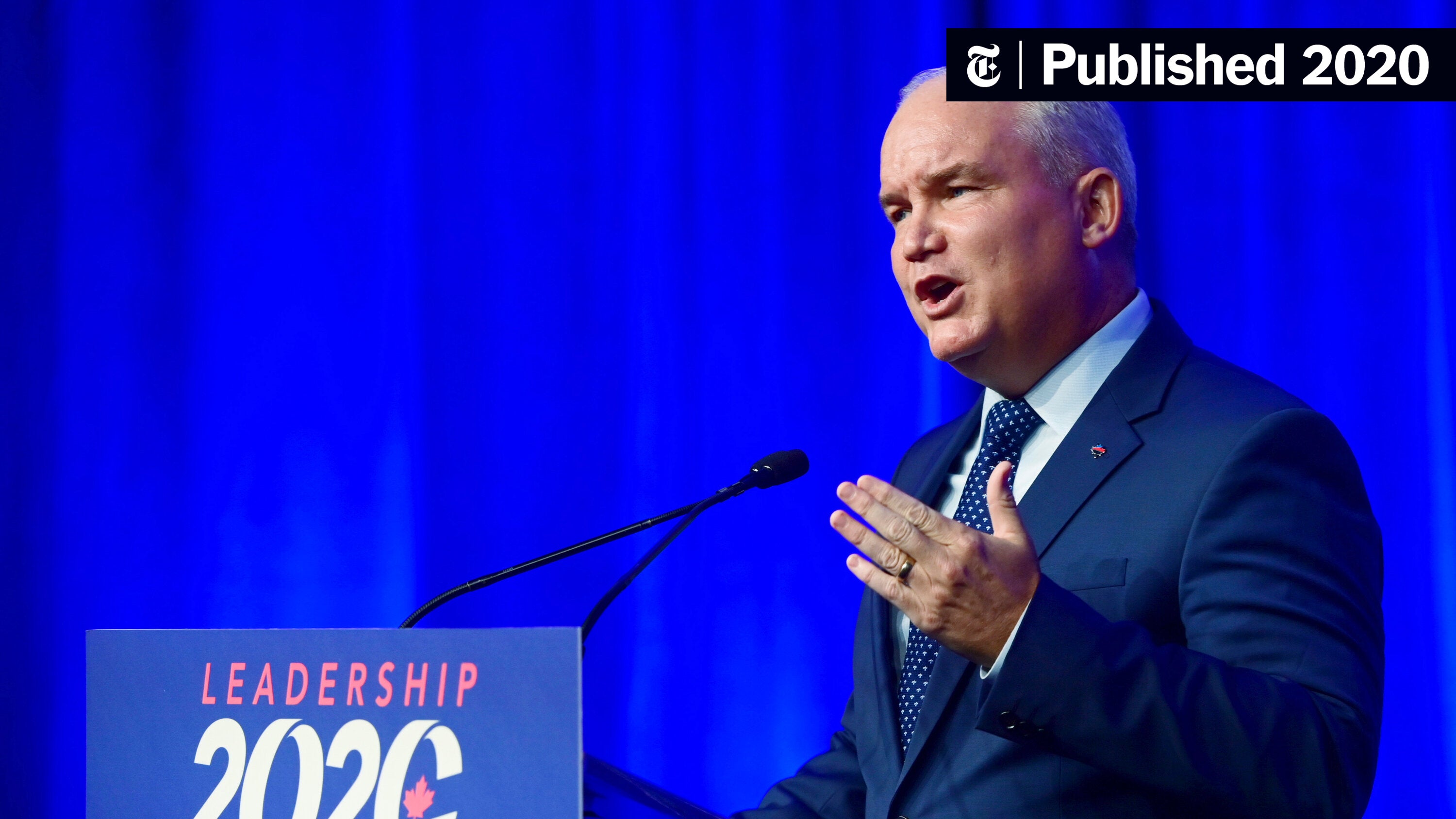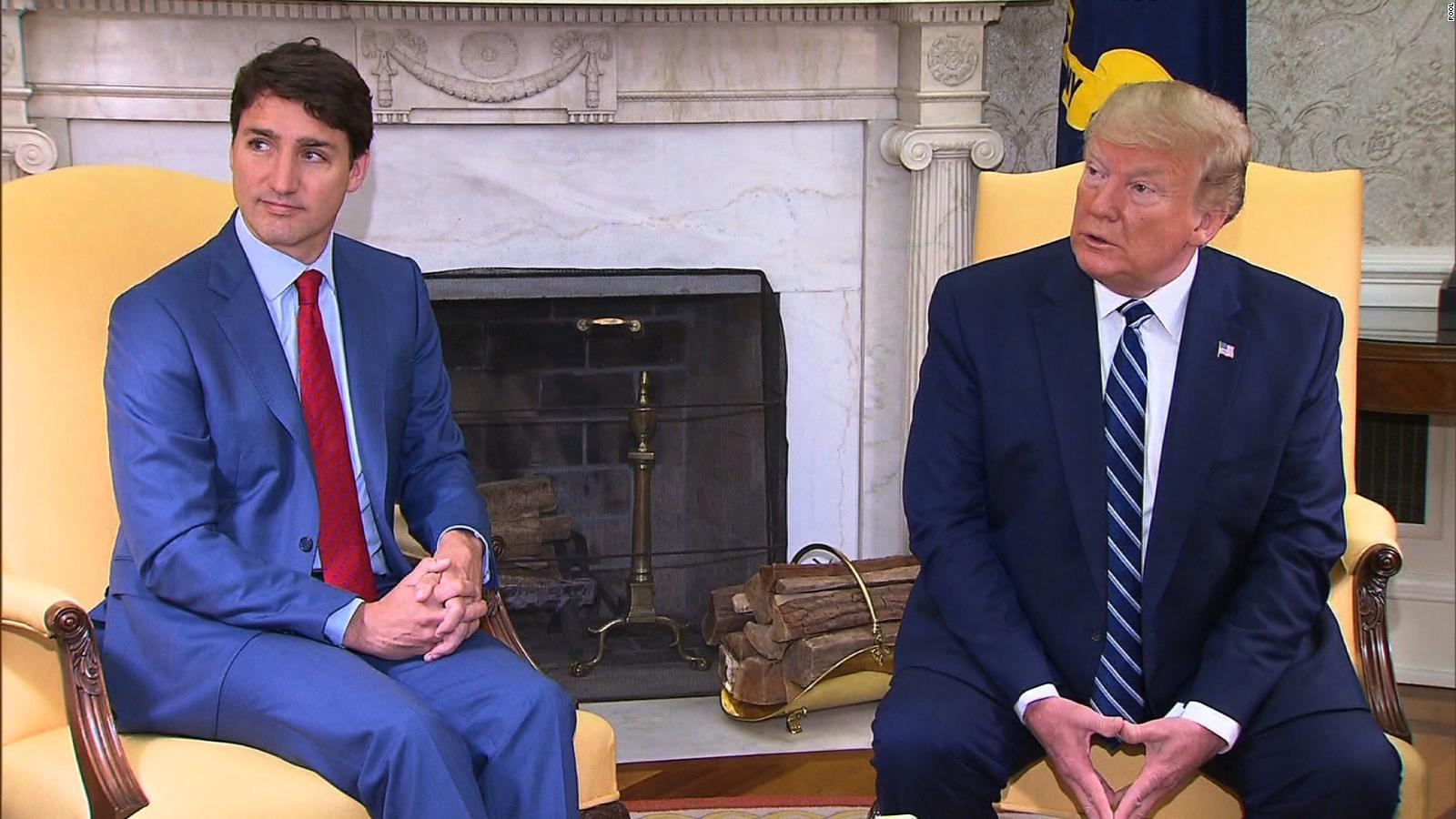Economic Hurdles Facing Canada's Next Leader

Table of Contents
Inflation and the Cost of Living Crisis
Rising Inflation Rates and Their Impact on Canadians
Canada, like much of the world, is grappling with persistent inflation. The current inflation rate, while showing signs of slowing, remains significantly above the Bank of Canada's target, impacting Canadian households considerably.
- Current Inflation Rate: While fluctuating, the inflation rate in Canada remains a concern, impacting purchasing power.
- Causes: Several factors contribute to this, including global supply chain disruptions, the lingering effects of the pandemic, and increased energy prices driven by geopolitical events.
- Impact on Households: Rising prices for essential goods like food, energy, and housing are squeezing household budgets, leading to decreased disposable income and increased financial stress. Many Canadians are finding it increasingly difficult to make ends meet.
Addressing this requires a multifaceted approach. The Bank of Canada's monetary policy, focusing on interest rate adjustments, aims to curb inflation. However, the government also needs to consider fiscal policies to mitigate the impact on vulnerable populations, such as targeted subsidies for essential goods or expanded social safety nets. The effectiveness of these policies will be crucial in determining the economic trajectory of the country. Keywords: inflation Canada, cost of living crisis, Canadian economy, inflation rate Canada.
Addressing the Housing Affordability Crisis
The cost of housing in Canada has become a major crisis, impacting both homeownership and rental markets.
- Challenges of Homeownership: Soaring house prices and rising interest rates have priced many Canadians out of the housing market, particularly first-time buyers.
- Rental Costs: Rental costs are also escalating rapidly, leaving many renters struggling to afford decent housing.
- Lack of Affordable Housing: A significant shortage of affordable housing units exists across the country, exacerbating the problem.
Potential solutions include increased government investment in affordable housing projects, stricter regulations on foreign investment in the real estate market to curb speculation, and incentives for developers to build more affordable housing units. Addressing the housing crisis requires a collaborative effort between the government, private sector, and municipalities. Keywords: affordable housing Canada, housing crisis Canada, real estate market Canada.
Navigating Global Economic Uncertainty
The Impact of Global Economic Slowdowns
Canada's economy is significantly intertwined with the global economy, making it vulnerable to international economic shocks.
- Global Recessions: The possibility of a global recession poses a serious threat to Canadian exports and economic growth.
- Trade Wars: Escalating trade tensions between major economic powers can disrupt supply chains and negatively impact Canadian businesses.
- Geopolitical Instability: Geopolitical instability, such as the war in Ukraine, can create uncertainty and volatility in global markets.
Canada's dependence on exports necessitates diversification strategies to mitigate risks. Investing in sectors less susceptible to global fluctuations and strengthening economic ties with diverse partners are crucial for building resilience. Keywords: global economy, Canadian trade, economic recession, geopolitical risk.
Managing Canada's Trade Relationships
Maintaining strong and mutually beneficial trade relationships is vital for Canada's economic prosperity.
- Key Trade Partners: The US remains Canada's largest trading partner, followed by China and the European Union.
- Potential Trade Disputes: Trade disputes can arise, leading to economic disruptions and impacting Canadian businesses.
- Negotiating Trade Agreements: Effectively negotiating and maintaining favorable trade agreements is crucial for ensuring access to global markets and promoting Canadian exports.
The Canadian government must actively engage in diplomacy and strategic negotiations to secure advantageous trade agreements and resolve any disputes swiftly. Promoting Canadian exports and fostering diverse trade relationships will be key to long-term economic stability. Keywords: Canada-US trade, trade agreements, Canadian exports, international trade.
Addressing Income Inequality and Social Issues
The Growing Wealth Gap and its Economic Implications
The widening gap between the rich and poor presents significant economic and social challenges.
- Impact on Economic Growth: High levels of income inequality can hinder economic growth by reducing aggregate demand and limiting opportunities for social mobility.
- Social Stability: Extreme income inequality can lead to social unrest and political instability.
- Intergenerational Poverty: Persistent income inequality can perpetuate cycles of poverty, creating long-term economic and social challenges.
Addressing this requires a comprehensive strategy encompassing progressive taxation policies, expansion of social safety nets to provide support for low-income families, and increased investment in education and job training programs to enhance social mobility. Keywords: income inequality Canada, wealth gap, social programs, poverty reduction.
Investing in Healthcare and Social Infrastructure
Significant investment in healthcare and social infrastructure is crucial for a strong and prosperous economy.
- Challenges Facing Canadian Healthcare: Canada's healthcare system faces various challenges, including long wait times and staffing shortages.
- Need for Infrastructure Investment: Investments are needed to upgrade aging infrastructure and build new facilities.
- Economic Benefits of Investment: Investing in healthcare and social infrastructure improves public health, productivity, and overall economic well-being.
Increased investments in healthcare and social infrastructure can not only improve the quality of life for Canadians but also yield significant long-term economic benefits by boosting productivity and creating jobs. Keywords: Canadian healthcare, infrastructure spending, social infrastructure, economic development.
Conclusion: Overcoming Economic Hurdles Facing Canada's Next Leader
The next Canadian Prime Minister faces a formidable set of economic challenges. Persistent inflation, a housing crisis, global economic uncertainty, and rising income inequality will require bold and strategic leadership. Understanding the interconnectedness of these challenges and implementing effective, multifaceted solutions will be crucial to ensuring a prosperous future for all Canadians. Key takeaways include the urgent need to combat inflation, address the housing affordability crisis, navigate global economic instability through diversified trade relationships, and tackle income inequality by investing in social programs and infrastructure. Understanding the economic hurdles facing Canada's next leader is crucial for informed civic engagement. Engage in informed discussions about the economic challenges facing Canada’s next leader and hold your elected officials accountable for their economic plans.

Featured Posts
-
 Giai Bong Da Sinh Vien Tran Chung Ket Mo Man Thu Hut Hang Ngan Co Dong Vien
Apr 30, 2025
Giai Bong Da Sinh Vien Tran Chung Ket Mo Man Thu Hut Hang Ngan Co Dong Vien
Apr 30, 2025 -
 Trumps 51st State Comments Is He Trolling Canada
Apr 30, 2025
Trumps 51st State Comments Is He Trolling Canada
Apr 30, 2025 -
 German Conservatives And Social Democrats Begin Coalition Talks
Apr 30, 2025
German Conservatives And Social Democrats Begin Coalition Talks
Apr 30, 2025 -
 Cavaliers Defeat Blazers In Overtime Hunters 32 Point Performance Leads To 10th Consecutive Victory
Apr 30, 2025
Cavaliers Defeat Blazers In Overtime Hunters 32 Point Performance Leads To 10th Consecutive Victory
Apr 30, 2025 -
 Miedzynarodowy Dzien Zwierzat Bezdomnych 4 Kwietnia Pomoz Zwierzetom
Apr 30, 2025
Miedzynarodowy Dzien Zwierzat Bezdomnych 4 Kwietnia Pomoz Zwierzetom
Apr 30, 2025
